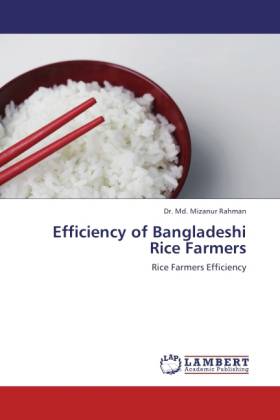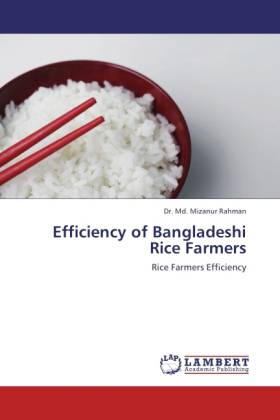
- Afhalen na 1 uur in een winkel met voorraad
- Gratis thuislevering in België vanaf € 30
- Ruim aanbod met 7 miljoen producten
- Afhalen na 1 uur in een winkel met voorraad
- Gratis thuislevering in België vanaf € 30
- Ruim aanbod met 7 miljoen producten
Zoeken
€ 107,45
+ 214 punten
Omschrijving
Despite doubling national rice production over the last thirty years, Bangladesh has continually experienced an annual food grain shortage of nearly 1.5 million tonnes. This shortage is likely to continue, as rice production must increase by at least 60 per cent in order to maintain the present level of requirements by the year 2020. Increasing rice production further is an enormous task since there is no scope for horizontal expansion of the rice area. Therefore, full exploitation of the present yield potential of the existing varieties could be one of the best short-term options to satisfy the present level of food demand. Study shows that human labour, draft power, fertilisers and pesticides make important contributions to the output of both local (LV) and modern varieties (MV). Results also imply that if young and educated people are involved with production activities, extension personnel pay frequent visits, credit is more easily available and fragmentation of land diminishes then the technical and allocative efficiency of rice farmers in Barisal district could be increased.
Specificaties
Betrokkenen
- Auteur(s):
- Uitgeverij:
Inhoud
- Aantal bladzijden:
- 308
- Taal:
- Engels
Eigenschappen
- Productcode (EAN):
- 9783846501146
- Verschijningsdatum:
- 20/09/2011
- Uitvoering:
- Paperback
- Afmetingen:
- 152 mm x 229 mm
- Gewicht:
- 454 g

Alleen bij Standaard Boekhandel
+ 214 punten op je klantenkaart van Standaard Boekhandel
Beoordelingen
We publiceren alleen reviews die voldoen aan de voorwaarden voor reviews. Bekijk onze voorwaarden voor reviews.







